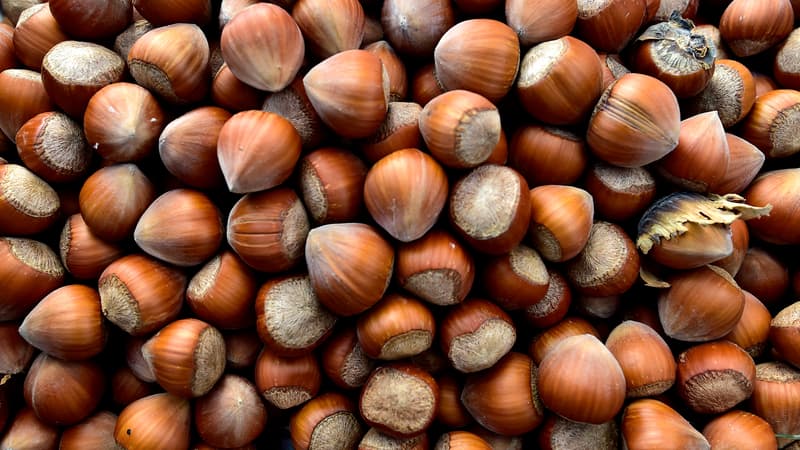Prevention of imports of products treated with acetamipride, consuming French or prohibiting Nutella: the agricultural world has asked the government of “coherence” after the decision of the Constitutional Council to renounce the reintroduction of this neonicotinoid pesticide by the Dupber Law. In fact, if prohibited for agricultural use in France, Acetamipride is still authorized until 2033 in the European Union and present in many imported products.
This censorship “inexorably will lead to even more imports with acetamipride and less and less French productions”, had deplored Senator LR due to the origin of the text Laurent Dupumb, of the Fensea. This powerful agricultural union asked his network to protest after the decision of the Constitutional Council, calling for clients in several supermarkets in France.
Farmers have eliminated antifourmis bottles of lightning stores and have stickers placed in hazelnuts or fruits imported in supermarkets containing acetamiprid. “Ok, we stop the acetamipride, but we prohibit the sale of Nutella because 90% of hazelnuts are imported (to produce it) (…), so it is dangerous to eat it,” jokes Véronique Le Floc’h, president of the rural coordination.
Cherries treated with dimetoate
The two unions demanded the reintroduction of acetamiprid, especially for sugar beet, warning against an increase in sugar imports, although France remains the first European producer. The peasant confederation, opposite to the return of the pesticide “bees murderer”, requested the activation of a safeguard clause “to protect our productions from international competition.”
For her part, the Minister of Agriculture Annie Ginevard said she wanted to continue working at European scale “towards a harmonization of the rules of protection of plants”, calling the French “an explosion of food patriotism” in the consumption elections so as not to penalize “our farmers twice.” Requested by AFP, in particular with the possibility of triggering a safeguarding clause for products treated with acetamipride, the Ministry rejected any comments.
A safeguarding clause was activated in 2016 to prohibit the importation of cherries treated with dimetoate, a dangerous insecticide for health. This measure guaranteed by European law allows a country “in case of emergency and a serious risk of animal, human and environmental health, impose restrictions” regarding the importation of certain products, explains Benoît Grimonprez, professor of rural law at the University of Poitiers.
Hazelnuts, apples, beets …
In addition to the dimetoate, France had used this clause in 2023, against cherries treated in Phosmet, and in 2024 against imports of fruits and vegetables treated in Tiaclopride, another neonicotinoid. But these last two products “were no longer authorized at European level,” recalls Benoît Grimonprez, unlike Acetamipride. France had activated the clause as an emergency measure, waiting for a European standard.
As for the dimetoate, the Minister of Agriculture at that time, Stéphane Le Foll, had arrested the European Food Safety Authority (EFSA), which had recognized that “the long -term potential risk and the acute risk of dimensioning in the health of consumers cannot be excluded”, despite their authorization in the European soil. Here again, France had taken this measure while waiting for the EU prohibition since 2019. For Benoît Grimonprez, this clause was also justified because “it was aimed at a sector, the cherry, so it was easier to implement.”
But there are two main differences with acetamiprid. First, “In Europe, multiple agricultural products are treated with acetamipride: honey, plums, market gardening products, apples, pears, beets, hazelnuts …”, details the lawyer.
Especially processed products
“There is already a European rule that takes into account the presence of the product and that determines the limits” authorized to preserve the health of the consumer, the LMR (maximum waste limits), then emphasizes. Any clause tried to safeguard on acetamipride “promises to be complicated,” according to Benoît Grimonprez. Unable to justify itself from a health point of view, the principle of free movement of goods in the European Union “would undermine.”
In addition, controlling the presence of acetamiprid in products in a generalized way could be complicated, especially for already transformed products.
Source: BFM TV


